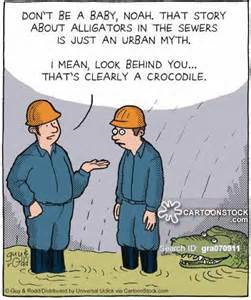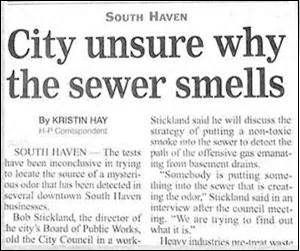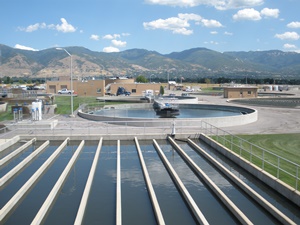Sewer Emergencies
Sewer emergencies can be caused by a variety of reasons including sewer pipes blocked by grease or other substances, or natural disasters such as earthquakes. Sewer backups and overflows can cause serious health hazards, threaten the environment, as well as cause severe damage to home interiors.
SEWER BACKUP
- If there is significant sewage flow coming up out of the drain continuously into the building, the sewer main is plugged. Call your Sewer District IMMEDIATELY!
- If the sewage flow coming up our of the drain is small, intermittent or just slow to drain, the sewer lateral from the main sewer line is probably plugged. The upstairs toilets, sinks, dishwashers and other fixtures will flood the downstairs. Make sure no water is running in the building. DO NOT USE ANY INDOOR PLUMBING. You will need to call an independent contractor to clean your sewer lateral out.
- If water from your indoor plumbing (toilets, sinks, dishwashers etc.) will not go down the drain, the sewer lateral to the building is plugged. You will need to call an independent contractor to clean your sewer lateral out.

EARTHQUAKE OR OTHER NATURAL DISASTER
- Check all drains to make sure that nothing is coming up through the drain.
- Flush the toilet or run some water down your sink. Then check your floor drains to make sure that nothing is coming up through them.
- If everything is fine, you can use all indoor plumbing, but be very conservative in your usage until you know if all sewer lines are working properly. Your sewer line may be fine, but there may be a sewer pipe ruptured down the road from you. If that were the case, using your plumbing may result in sewage problems in other areas of your neighborhood.
- Listen to the radio for other emergency details.
- If sewage flow is coming up through your drain or if your water will not go down, follow the instructions above for sewer backup.
SEWER ODORS FROM FLOORS DRAINS
It must always be assumed that dangerous gasses are present in the public sewer system, Floor drains, sinks, and other fixtures have goosenecks and p-traps designed to form a water plug. The water plug prevents odors and dangerous gases from entering building from the sewer system. The traps in floor drains and sometimes showers, sinks, etc. which receive very little use can dry out. This allows gasses from the sewer to enter the building. These gases can be toxic, explosive or both.

To maintain the liquid seal, you should routinely (every six months) pour about a pint of mineral oil or RV antifreeze into basement floor drains and other fixtures that are seldom used. If odors persist or strong odors are encountered call your Sewer District for assistance.
PROBLEM PREVENTION ADVICE
- NEVER POUR GREASE DOWN THE SINK DRAINS, DISPOSALS OR INTO TOILETS.
- Install a backflow prevention valve as required by the international Plumbing Code.
- Avoid storing valuable personal property on or near a basement drain.
- Avoid placing expensive carpet, rugs or upholstered furniture on or near a basement drain.
- Place water alarms in your basement to facilitate detection of backups early.
Fats, Oils, and Greases (FOG) aren't just bad for your arteries and your waistline; they're bad for sewers, too. Where does the grease come from?
Grease is found in such things as:
- Meat fats
- Lard and cooking oil
- Shortening, butter, and margarine
- Food scraps
- Baking goods, sauses and dairy products
For further information contact your local sewer district:
South Davis Sewer District......801-295-3469
Central Davis Sewer District....801-451-2190
North Davis Sewer District.......801-825-0712

